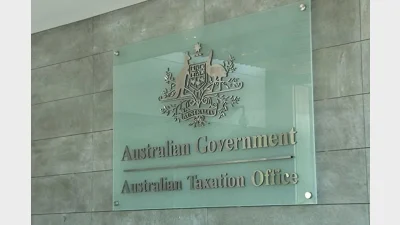(May-2003) Australian Pie: Don McLean gets the biggest slice
With assets of $27 billion under his helm, Don McLean, CEO of First State Super and State Super, manages more money than any other top superannuation executive and for that matter, more than any people in the Australian financial services industry.
Yet he is new to the world of not-for-profit super, having only joined the two giant public sector funds towards the end of January after spending many years as a consultant and working in retail funds management.
There haven’t been any major changes at the two funds since McLean arrived, “except, perhaps, in our approach to problems”. “We are really looking to find solutions to problems rather than just identifying them.”
But he adds: “I am still in the learning phase of getting to understand the business. I have a very good executive team and I am busy working with them. It’s still early days, and there’s a danger of making too many promises at this stage. There are plenty of examples of promises made in the corporate world by newly appointed CEOs that could not be delivered. ”
While he’s excited about being involved with two of the Australia’s largest super funds, McLean notes: “Size gives you certain benefits in the market, but there are also problems that come with size that need to be managed.
“Managing so much money is a huge responsibility, but we don’t do it alone. We outsource all our investments and we have external asset consultants to help us set benchmarks and monitor managers. Our main roles are to implement changes in legislation, to monitor our various service providers and to satisfy our board’s requirements.”
At the moment, McLean believes the challenges faced by his funds — investments, administration, distribution and communication with members — are the same as those confronting all super funds and in fact, all investment management businesses. “All that changes are the rules around them,” he says.
An actuary by training, McLean spent the 1970s and early 1980s working at life companies like Mercantile Mutual (now ING) and Greater Pacific Life, which became ANZ Life. In the early 1980s, however, he made a change, joining BT which was in the early stages of developing its retail unit trust business, a new industry in those days.
After leaving BT in 1987, McLean went into consulting. However, in 1990, one of his clients, MLC, offered him a job developing its unit trust business. He also spent 12 months of his time at MLC in Seattle, USA, examining a venture MLC was interested in buying, before returning to consulting for a few years.
While the public sector is “a bit of a change” from the corporate world, McLean says: “I work with a board of trustees which isn’t very different to working with a board of a company.”
Unlike most other executives in the superannuation industry, however, he oversees exempt super funds, rather than funds governed by the Superannuation (Industry) Supervision Act 1993 (SIS). “This adds an extra layer of state legislation which makes things more complex at times,” he says.
With assets of $22 billion, the predominantly defined benefit State Super fund is the country’s largest super plan. It has, however, been closed to new members since 1985 and its assets and membership continue to shrink as people transfer out or retire.
On the other hand, First State Super, an accumulation fund with assets of $5 billion, continues to expand solidly.
NSW public sector employees already have choice-of-funds although First State is their default fund. Nonetheless, many do find First State attractive. “Because of its size, it has a low cost structure and is able to negotiate economies of scale with its fund managers,” says McLean. “Further, we have managed to hold First State’s fees at $1 a week for the last four to five years.”
However, he cautions that the introduction of choice-of-funds legislation could have a slightly negative effect on First State because it cannot accept contributions from non-NSW public sector employees. This means that once members leave the public sector, they can no longer contribute to the fund.
A particularly competitive area for First State is the health sector, which is hotly contested by industry funds like HESTA, HIP and Health Super. Another active area is the education sector, but McLean says because schools are more dispersed, the battleground is not as fierce as it is in the big hospitals where large groups of members gather.
McLean says First State would like to be regulated under SIS so that it can accept members from both the public and private sectors. “The issue has been discussed. But if the change is made, it may be a lengthy process because of the need to change a wide range of state legislation.”
Recommended for you
The industry fund has called on ASX 300 companies to strengthen priorities around resilience, climate, and gender, while itself facing criticism over fossil fuels.
Industry fund HESTA has filed an appeal against an ATO decision on tax offsets from franking credits, with the Australian Retirement Trust set to file a similar claim soon.
The latest superannuation performance test results have shown improvements, but four in 10 trustee-directed products continue to exhibit “significant investment underperformance”, warns APRA.
The corporate regulator has launched civil proceedings against Equity Trustees over its inclusion of the Shield Master Fund on super platforms it hosted, but other trustees could also be in the firing line.











